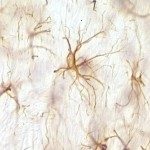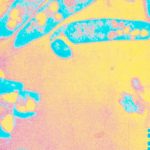Lien vers Pubmed [PMID] – 11457994
J. Gen. Virol. 2001 Aug;82(Pt 8):1885-92
Dengue virus infections are a growing public health concern and strategies to control the spread of the virus are urgently needed. The murine monoclonal antibody 4E11 might be of interest, since it neutralizes dengue viruses of all serotypes by binding to the 296-400 segment of the major dengue virus envelope glycoprotein (DE). When phage-displayed peptide libraries were screened by affinity for 4E11, phage clone C1 was selected with a 50% frequency. C1 shared three of nine residues with DE(306-314) and showed significant reactivity to 4E11 in ELISA. C1-induced antibodies cross-reacted with DE(296-400) in mice, suggesting that it was a structural equivalent of the native epitope of 4E11 on DE. Accordingly, 4E11 bound to the DE(306-314) synthetic peptide and this reaction was inhibited by DE(296-400). Moreover, DE(306-314) could block dengue virus infection of target cells in an in vitro assay. A three-dimensional model of DE revealed that the three amino acids shared by DE(296-400) and C1 were exposed to the solvent and suggested that most of the amino acids comprising the 4E11 epitope were located in the DE(306-314) region. Since 4E11 blocked the binding of DE(296-400) to heparin, which is a highly sulfated heparan sulfate (HSHS) molecule, 4E11 may act by neutralizing the interaction of DE(306-314) with target cell-displayed HSHS. Our data suggest that the DE(306-314) segment is critical for the infectivity of all dengue virus serotypes and that molecules that block the binding of DE(306-314) to HSHS may be antiviral reagents of therapeutic interest.



